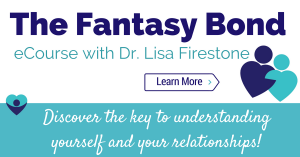5 Things to Try Before You Give Up on Your Relationship
 It’s a pretty common consensus that love takes work. Yet, 80 percent of Americans under 30 believe in a soulmate, the idea that there is one perfect person out there just waiting to be found. Even the expression “falling in love” makes it sound like love is out of our hands — that it just happens to us. Achieving long-lasting love isn’t usually easy, even when we meet the right person. However, it’s also not an endlessly laborious undertaking that takes more in struggle than it offers in pleasure. So how do we know when to give up on a relationship, and how do we know when to fight for it?
It’s a pretty common consensus that love takes work. Yet, 80 percent of Americans under 30 believe in a soulmate, the idea that there is one perfect person out there just waiting to be found. Even the expression “falling in love” makes it sound like love is out of our hands — that it just happens to us. Achieving long-lasting love isn’t usually easy, even when we meet the right person. However, it’s also not an endlessly laborious undertaking that takes more in struggle than it offers in pleasure. So how do we know when to give up on a relationship, and how do we know when to fight for it?
First, we should accept the reality that relationships, while in and of themselves have the potential to be fairly sweet and simple, are often made terribly complicated. When any two people with two separate minds, two separate pasts and two separate sets of baggage come together, the future will not likely be just one smooth sail into the sunset. Falling in love can be the most joyful experience in a person’s life, yet we tend to underestimate the level of fear, anxiety, sadness and even anger it can stir up, a subject I addressed in my recent blog, “7 Reasons Most People are Afraid of Love.”
In a backwards twist, these fears tend to grow even stronger the closer we get to someone else. Without knowing it, we all have defenses in us, based on hurtful past experiences, that now operate to push love away. So, when it comes to deciding when to call it quits on a relationship we once valued, the first thing we have to ask ourselves is, how much are my own defenses at work? What am I bringing to the table that could be sabotaging closeness?
When approaching the actions you should take before you opt to break up, it’s important to adopt the attitude that the only person you can truly change is yourself. You control 100 percent of your half of the dynamic. You’re not a victim in your relationship; ultimately you can always choose to move on. Playing the blame game will only leave you feeling powerless and going in circles. Even if you eventually decide that the relationship is not worth keeping, as long as you’re in it, you can make a practice of being the best person you can be. You can grow your own ability to love, to be open and to be vulnerable — skills that will greatly benefit you in life and in future relationships. These are skills I will elaborate on in my upcoming eCourse, “Creating Your Ideal Relationship.” And what better place to practice these relationship skills than in a relationship? With that in mind, here are five things to try before saying goodbye to your relationship.
1. Reflect on what drew you together.
We don’t always choose partners for the right reasons. Sometimes, we pick people who challenge us, who push us to grow and expand our worlds. Other times, we choose people whose defenses and negative traits fit with ours. If we tend to be passive or indecisive, for example, we may choose someone who’s pushy and domineering. These qualities that first draw us in can become the reasons we wind up falling out.
Unfortunately, that sparkly attraction we feel at the beginning isn’t always a good sign. It could be a draw that’s based on our history — a negative dynamic from our past that we subconsciously seek to perpetuate. If we were invisible in our families, for instance, we may seek a familiar scenario with a partner who doesn’t show a lot of initial interest, who doesn’t make us a priority or show his or her affections. If we had a parent who wanted to “perfect us,” we may find partners who “help us,” but we may later come to resent them for always seeing us as the problem that needs to be fixed or perfected.
While sometimes our partner selection can be off, it isn’t always to blame for a relationship’s downfall. If the attraction and excitement we felt at the beginning starts to fade, it doesn’t necessarily mean we chose the wrong person. That is why it’s so important to consider our early feelings in the relationship. If we were truly in love with someone at one point, it is possible for us to regain those feelings. We should think about what drew us to our partner and the years of shared history, in which we enjoyed activities, affection and intimacy. We can then look for the real reasons things took a turn for the worst and make a change that brings us back to those initial feelings and has a lasting impact.
2. Try breaking your routine.
One of the main reasons a relationship fails is due to the couple having entered into a “Fantasy Bond.” A Fantasy Bond is a term developed by my father, psychologist Robert Firestone, to describe an illusion of connection many couples form at some point in their relationship. A Fantasy Bond differs from real love in that sincere acts of kindness are replaced by routine, and form is favored over substance in the relationship. Couples enter into this scenario without even realizing it, as a means to feel a false sense of security, an illusion of fusion or “oneness.”
 A Fantasy Bond has a “deadening” effect on a relationship, as two partners start to control each other and limit each other’s worlds. They become a “we,” while losing a sense of each of their identities as two separate individuals. Real contact and the give and take of loving exchanges are diminished. Partners take each other for granted and lose their attraction to each other. They stop supporting the unique interests and personality traits that light the other person up and make him or her who he or she is. This, in turn, creates a stale environment in the relationship, where both parties feel resentment and a lack of excitement toward each other.
A Fantasy Bond has a “deadening” effect on a relationship, as two partners start to control each other and limit each other’s worlds. They become a “we,” while losing a sense of each of their identities as two separate individuals. Real contact and the give and take of loving exchanges are diminished. Partners take each other for granted and lose their attraction to each other. They stop supporting the unique interests and personality traits that light the other person up and make him or her who he or she is. This, in turn, creates a stale environment in the relationship, where both parties feel resentment and a lack of excitement toward each other.
There are many characteristics of a Fantasy Bond that are valuable to explore, however it is important to remember that this type of bond is not a black or white state of being. A Fantasy Bond exists along a continuum. Most couples find themselves somewhere on the spectrum, having entered into a bond to varying degrees. We can start to break free from fantasy by changing our way of relating in our relationship. A friend of mine recently adopted this strategy by deciding to take more initiative in his relationship, rather than passively going along with whatever his partner decided. He did this for himself without expecting anything from his partner. To his surprise, however, this shift in himself yielded a very positive response from his girlfriend, who appreciated him expressing himself and having a definite point of view. She became sweeter and softer in her approach to him and stopped acting as controlling in the relationship.
3. Determine if your past is impacting your present.
Often partners form a caricature of each other. They start to focus their attention on any flaws their partner has, even magnifying them and trivializing their strengths. In essence, they start to distort their partner, sometimes becoming critical of traits they once admired or found amusing. We don’t typically realize it, but our motivation for doing this again sources from our past. On an unconscious level, we often seek to recreate negative dynamics from our history. We may even provoke our partners to treat us as we were treated in our early life. We may also use old, unhealthy coping strategies in our relationships that were adaptive to our life as a child, but which no longer serve us. For example, if a parent intruded on us, we may have become introverted or kept to ourselves but these characteristics may make it hard for us to open up in our adult relationships.
Too often, we run the risk of projecting onto our partner and seeing them through a faulty filter that reflects the reality of our past. We may even provoke our partner to treat us in ways that are familiar from our childhood. To help get a hold of this, we can think about times when our partner was provoked us, then ask ourselves what we did just before that. Were we nagging, complaining, icing them or acting coldly? If we recognize the behaviors we are engaging in to recreate old dynamics, we can start to change our ways of interacting in order to get back to a much cleaner, more authentic way of relating to our partner. We can start to actually engage in loving actions and enjoy each other once again.
4. Recognize your fears of intimacy.
People often react to being loved. This has to do with the fears I talked about earlier that surround getting close to someone. When we get scared, we tend to pull away from our partner. We pick fights, become more critical, even react angrily to compliments or acts of love. More than anything, we start to withhold the traits that our partner once loved about us. We may stop being as affectionate or adventurous. We may resist engaging in activities we mutually enjoyed with our partner.
Acting against being withholding means being willing to be vulnerable. It means engaging in shared activities and putting a stop to patterns that push our partner away. Have we stopped caring about our appearance? Have we started working nonstop, failing to make our partner a priority in our lives? Think about the actions you’ve stopped taking as well as the ones you could start taking to reignite the loving feelings in your partner. When your partner does express love toward you, be accepting. Return the loving look. Don’t deflect his or her compliments. Even though it may feel hard or uncomfortable, try to accept the love directed toward you without saying or doing something that might interrupt your partner’s feelings.
5. Unilaterally disarm.
All relationships have heated moments of tension. As these moments arise more and more, and as we start to see our partner more critically, we may begin to build a case against them. This is fairly easy to do, as no person is perfect, and we can always file their mistakes into certain flaw categories. When we build a case against our partner, we tend to be set off faster, jumping on them the moment they slip up or overreacting to them. In times of stress, fights tend to escalate. We say worse and worse things to each other, things we don’t even mean. This leaves us feeling pretty lousy about ourselves and our relationship.
Instead of focusing on our partner, a highly effective technique to adopt is unilateral disarmament. That means dropping the case, taking a breath and not reacting in a heated way, no matter what our partner does or says. Try to have an open and compassionate attitude toward them and to respond with understanding. Don’t focus on correcting them or telling them what they can do to change. Instead, we should focus on taking full responsibility for our part of the dynamic. We should choose being close over being right. This attitude will often melt your partner’s heart and, regardless, will leave you feeling much better in yourself.
Whatever future your relationship holds, you will be empowered by the fact that you have the ability to change yourself. When you change and are willing to be vulnerable, your partner often softens and responds. As you do this, you should have what Dr. Dan Siegel describes as a COAL attitude toward yourself, in which you are Curious, Open, Accepting and Loving. When you love yourself, you are better equipped to act with integrity in your relationships. You become a person you respect, and you give your relationship its best chance at survival.
Learn more about Dr. Lisa Firestone’s eCourse “Creating Your Ideal Relationship: How to Find and Achieve the Love You Say You Want“
Learn how to break free from a Fantasy Bond in our eCourse “The Fantasy Bond: The Key to Understanding Yourself and Your Relationships“
Tags: break-up, break-ups, breaking up, failed relationships, how to fix a relationship, improve your relationship, intimacy issues, relationship issues, relationship problems, relationship tipsOne Comment
Leave a Reply
You must be logged in to post a comment.










What a piece of amazing information. it’s true that we all want an ideal relationship but we have become so busy in our lives and daily routines that we hardly give time to our partners. Thanks to the transgender dating app through which I can talk to my girl any time and anywhere.